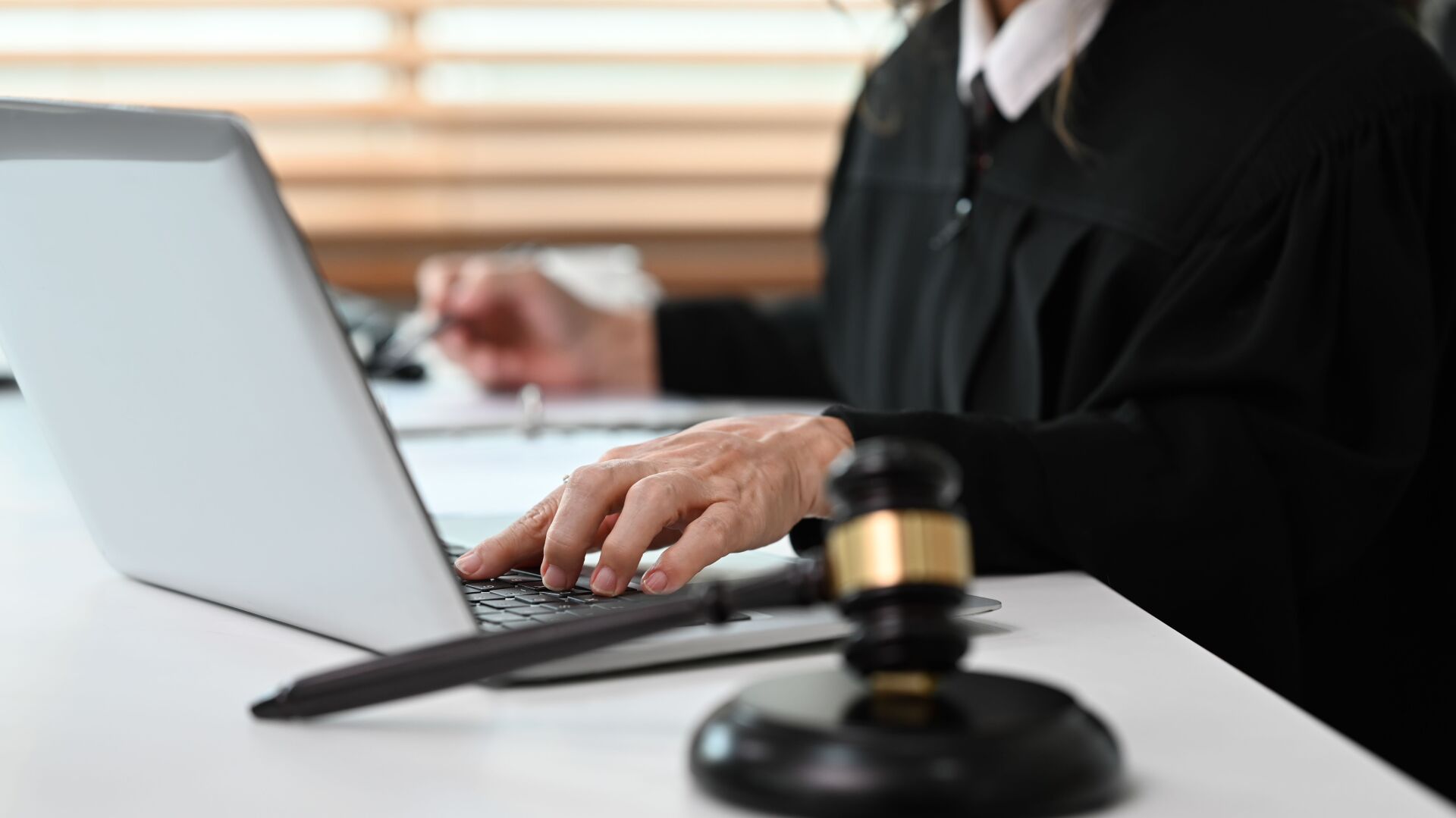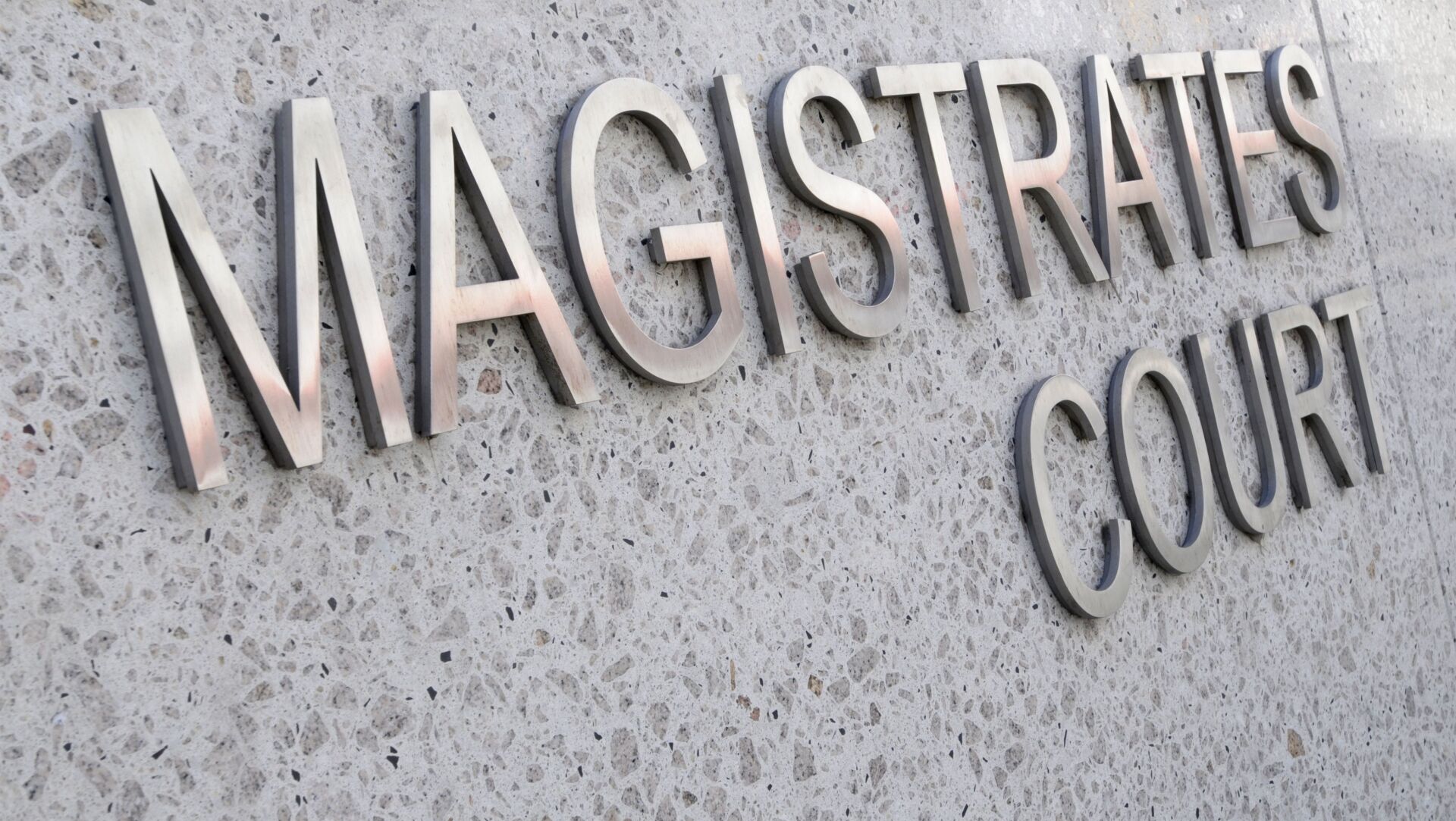
WHAT IS A BOND HEARING?

As criminal defense lawyers in Greenville and Upstate South Carolina, we routinely handle bond hearings (or bail hearings). A bond hearing is usually the first thing that occurs when a person is arrested in South Carolina. After an accused is booked at a jail, a bond judge will hear the case and decide whether to release the accused from custody, and if so, under what conditions (making bail).
Do you need a bondsman to release someone from jail in South Carolina?
This depends on whether the bond court judge issues a surety bond
or a personal reconnaissance bond. In South Carolina, a bond court judge might release someone from custody based on their own “personal reconnaissance” without posting any bail money. A personal recognizance bond
is frequently called a “PR bond.”
On the other hand, a surety bond requires an accused to pay money to get out of jail. In misdemeanor cases, a bond might be a few hundred dollars or a couple thousand. In more serious cases such as felony offenses, the bond is usually higher. There are three ways to post a surety bond. First, the accused can hire a bondsman who will charge a non-refundable fee (usually 8% to 10% of the total surety bond ordered by the court) in exchange for posting the bond for you. Second, the accused can post cash in the total amount of the bond to the court as collateral. In certain cases, in the Court’s discretion, the accused can post only a certain percentage of the total bond to the court. Finally, in addition to posting cash or using the services of a bail bondsman, in certain cases you can pledge collateral, such as a home or land within the county in which the reviewing Court sits, to meet the required amount of the bond. The collateral has to be at least equal to if not greater than the amount of the bond.
What makes a bond hearing judge decide to give a PR bond or a surety bond?
There are two considerations for the bond judge in deciding whether to issue a PR bond or a surety bond: (1) whether the accused is a flight risk, and (2) whether the accused is a threat to the community. In deciding whether the accused is a flight risk, the judge weighs several things, such as the nature of the present charges and the person’s ties to the community. The more serious a charge, the more likely an accused is to flee and not face them. However, the more closely connected an accused is to his or her community, the less likely he or she is to flee. Having local children, family, and jobs all show ties to the community. Having lived in the area for a long period of time also shows these ties. If the defendant turned himself in, that goes in favor of showing that he does not intend to evade the charges. However, there is no strict formula bond judges follow in making this decision, and they have a lot of leeway in determining flight risk.
In considering whether the person is a continuing threat to society, the bond judge looks at the nature of the offense and the person’s history. If the alleged crime involves a victim, the judge may hear from the victim regarding whether he or she feels the defendant is still a threat or not.
In all, the 8th Amendment of the Bill of Rights does prohibit “excessive bail,” and there is some law that says that bail can’t be higher than what will insure the accused shows up for trial. Otherwise, in cases punishable by death or by life imprisonment, the judge can deny the person bond, which means the person will have to sit in jail until trial unless the defendant’s lawyer can get the bond reduced.
It is important to note that a bond hearing is not a hearing on the likelihood of guilt or lack of guilt, unlike a formal trial, which, if one does take place, would likely not take place for quite some time after a bond hearing.
After an accused is arrested, when will the court set a bond hearing?
In most cases in the State of South Carolina, bond hearings are to be held within 24 hours of the arrest of an accused. However, it can take longer in some cases. For example, a person charged with DUI may still be too intoxicated to appear before the judge within 24 hours of his or her arrest, or the accused is hospitalized at the time of arrest and is not released within 24 hours. Sometimes, the police officer simply does not get the paperwork finished and turned in for the hearing in a timely manner. Unfortunately, there is no good remedy for someone who is held a day or so longer than they should have been. Fortunately, in the vast majority of our cases, this has not been a problem, even if a few cases do go past 24 hours. It is important for an accused’s attorney to be in touch with the police department and the bond court to find out exactly when the hearing will be scheduled. You do not have a lot of time to hire a lawyer, so if you are looking for one, it is best to act as fast as possible. Call us as soon as you can if you have a bond hearing coming up. Even if the bond hearing passes, we will still speak with you or with the accused about preparing a defense.
In cases punishable by death or life imprisonment, bond is set by a circuit judge. This likely takes longer than 24 hours, and may sometimes take weeks. If the charge is burglary in the 1st degree, the normal bond judge can hear the case unless the solicitor objects, but they often do, which means burglary 1st cases get heard by a circuit judge also. If the accused is charged with a “violent crime,” as defined in Section 16-1-60 of South Carolina’s Code of Laws, and the person is already out on bond on a previous “violent crime,” then a circuit judge must hear the case, which can take up to 30 days.
Who attends a bond hearing in South Carolina?
In some courts, the person accused is often not physically present but instead participates through a video conference. If the case involves a victim, such as an assault charge, then that victim and his or her advocate have a right to be at the hearing and have a right to be heard by the bond hearing judge. Some representative of the police department will be there. Your lawyer will be there also if you have one. Also, supporters of the accused such as family members may be there, but the court may limit how many are allowed in the courtroom at one time. Our firm prefers to bring supporters with us to bond hearings when it is possible; it helps show the “family ties” that show our client isn’t a risk of flight.
What will the bond court judge do besides set bail?
In South Carolina, the bond court judge may place other conditions in addition to the posting of bail before an accused may be released from jail. If there is a victim, then the judge will probably order that the defendant have no contact with the victim, direct or indirect, and will heavily emphasize this. The judge may require the accused to wear an ankle monitor to make sure he or she doesn’t go to certain locations. The judge may require the accused to be on house arrest. The bond will probably prohibit the accused from leaving the state without first getting written permission from the solicitor or the judge. There are several other things a judge can order as a condition of bond, so it is important to address these things at the hearing and for the defendant to be aware of the additional conditions so he or she does not violate them.
Should the defendant speak at a bond hearing?
In deciding how to set bond, the judge will want to know about the accused and will likely ask questions such as how far the accused went in school or if (and where) the he or she works. The accused has an absolute right to remain silent. For this reason, we believe the best practice is to have an attorney at the bond hearing so that the attorney can do all of the talking so that his client can exercise his or her right to remain silent. In certain cases, the judge will start exploring facts or circumstances that relate to the present charge. Then, a danger arises; it is possible the accused may say something incriminating that can be used against him later. There is no reason to speak if you can have your lawyer speak for you.
It is important to know that the accused is not asked to plead guilty or not guilty at the bond hearing. The only thing that happens at the bond hearing is that bail gets set, with or without conditions as we described above.
Can I get my bail money back in South Carolina?
If the criminal charges are dismissed or the accused is found not guilty at trial, then that person is entitled to the return of the money or collateral that they paid or pledged to bail out. However, if you paid a bondsman, that is the fee for their services for which you do not receive a refund. If you fail to show for court, the bond is forfeited. If you plead guilty or are found guilty, the bond is discharged.
Should I hire an attorney for a bond hearing?
If you or a loved one has been charged with a crime in Greenville County or Upstate South Carolina (including, but not limited to, Pickens County, Anderson County, and Spartanburg County), you should not wait to contact an attorney to represent you at a bond hearing. Even if your bond is already set by a magistrate judge, the right attorney
can negotiate with the Solicitor’s office (or take the issue to a judge at a further hearing) to reduce the bond set by the magistrate to an attainable yet reasonable Surety Bond or even a PR Bond. Let the attorneys at Watson Fowler be the right attorneys for you. We have over four decades of combined experience in criminal law ready to serve you.
If you have any questions, please do not hesitate to fill out a FORM on our website or to give Watson Fowler a call at (864) 467-0380 to schedule a FREE consultation with Greenville criminal defense Attorneys Joe Watson and Asher Watson. At this consultation, we will be able to better explain to you the entire criminal defense process, what you are up against, any possible sentences and consequences, as well as begin to put together a plan for defending you, as well as answer any and all of you or your family’s questions.
SEARCH
RECENT POSTS

By Watson Fowler
•
19 Oct, 2017
In the State of South Carolina, a Power of Attorney (“POA”) is a legal document that conveys to another written authority to assist you, either immediately or upon a future condition, regarding financial decisions while you are alive. The person appointed powers under a Power of Attorney is called an “agent” (under older statutes, the “agent” was called an “attorney in fact”). The person for which a Power of Attorney is drafted is called a “principal.” Upon death, a Power of Attorney written and executed on your behalf is no longer effective; instead, it “dies” with you. At that point, the Executor of your estate (otherwise known as a Personal Representative) takes over (or, in the case of Trusts that touch on your property after your passing, a Trustee takes over).

By Watson Fowler
•
18 Oct, 2017
As Greenville defense attorneys, Joe Watson and Asher Watson frequently appear at preliminary or “probable cause” hearings for our clients. In the State of South Carolina, anyone arrested for felony charges, as well as for misdemeanor charges, has the right to a preliminary hearing. However, if a hearing is not requested within ten days of the arrest, then the right to a preliminary hearing is deemed waived and can no longer be requested or otherwise granted.

By Watson Fowler
•
19 Oct, 2017
In the State of South Carolina, a Power of Attorney (“POA”) is a legal document that conveys to another written authority to assist you, either immediately or upon a future condition, regarding financial decisions while you are alive. The person appointed powers under a Power of Attorney is called an “agent” (under older statutes, the “agent” was called an “attorney in fact”). The person for which a Power of Attorney is drafted is called a “principal.” Upon death, a Power of Attorney written and executed on your behalf is no longer effective; instead, it “dies” with you. At that point, the Executor of your estate (otherwise known as a Personal Representative) takes over (or, in the case of Trusts that touch on your property after your passing, a Trustee takes over).

By Watson Fowler
•
18 Oct, 2017
As Greenville defense attorneys, Joe Watson and Asher Watson frequently appear at preliminary or “probable cause” hearings for our clients. In the State of South Carolina, anyone arrested for felony charges, as well as for misdemeanor charges, has the right to a preliminary hearing. However, if a hearing is not requested within ten days of the arrest, then the right to a preliminary hearing is deemed waived and can no longer be requested or otherwise granted.

ABOUT US
The attorneys at Watson Fowler bring to bear enormous experience in all levels of court in South Carolina
P: 864-467-0380
F: 864-362-8342
INFORMATION
© 2022 Watson Fowler | All Rights Reserved.